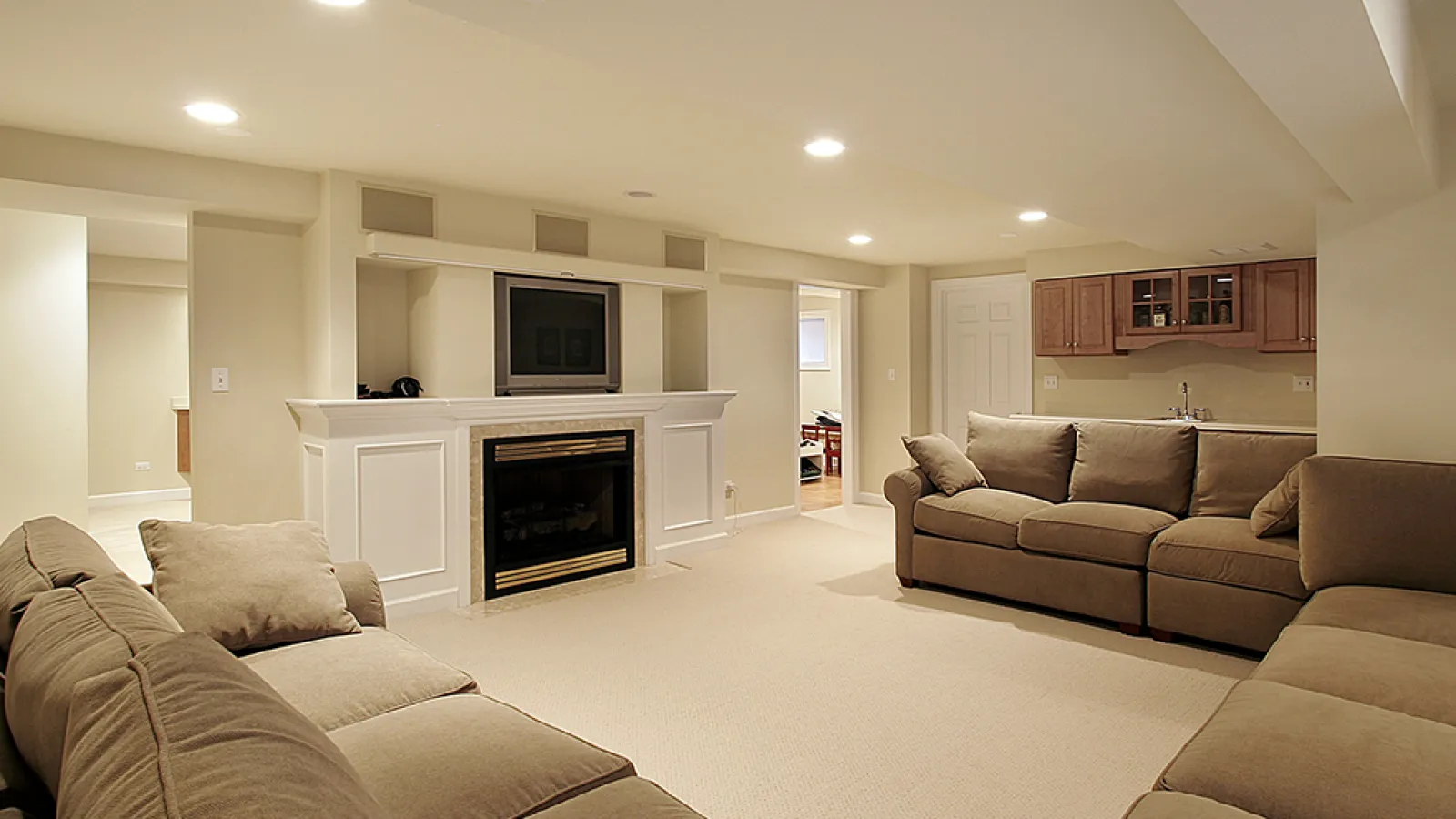When it comes to keeping your Atlanta area home comfortable when it’s cold outside, basements often pose a challenge for homeowners. To help you and your loved ones stay comfortable while using this below-ground space in the home, Estes Services shares tips for keeping your basement warm in the winter.
Improve Insulation Levels
Keeping your basement warm in the winter relies heavily on insulation. Atlanta, Georgia is in the International Energy Conservation Code’s Zone 3. This code, plus the state’s supplements, require minimum R-values of 13 for cavity insulation and 5 for insulated sheathing. To help the basement retain more heat and reduce energy loss due to poor insulation, increasing insulated sheathing R-values to 8 or higher, as well as increasing insulation in wall cavities above R-13, is recommended. Adding insulation to ducts in the basement at R-6 or higher will help heated air retain its energy while traveling through the ducts installed in this area of the home.
Air Sealing
Air leaks in a home allow cold, outdoor air to come in and heat to escape during the winter. Basements can be home to all kinds of gaps and cracks – between floorboards overhead; in the basement walls or slab foundation; where flues, wires, and other pipes penetrate the wall or ceiling; around egress windows or exterior doors; and other areas. One common area notorious for basement air leaks is at the basement rim joists, which is where the wood framing of the home and its foundation meet.
Air sealing can significantly help keep your basement warm in the winter. Use caulk and spray foam insulation to close up these gaps and cracks so your basement is able to retain more heat and avoid as much cold air infiltration as possible.
- Use acrylic latex or silicone caulk to close cracks .25 inches in size or less.
- Use expanding spray foam to close gaps up to 3 inches in size.
Install Flooring
If your basement floors are simple concrete, this area of the home will struggle to hold heat. This porous material can allow moisture to come through and make the slab floor feel damp and cold. Tile and wood flooring choices for finished basements aren’t much help when it comes to heat retention, either.
Installing carpeting or floor rugs in these areas will be helpful for keeping your basement warm in winter. The layer of padding plus the fibrous carpet material allow heat to dissipate at a much slower rate than flooring choices like tile or wood. If you live in an area prone to flooding, it’s understandable that you may not want to install carpet in the basement – placing large, thick rugs on the basement floor is an easy solution that can be removed quickly should you experience moisture troubles later on.
Heating Solutions
If you want a heating solution for keeping your basement warm in the winter, consider installing a radiant floor heating system. Radiant heating systems are made up of a network of piping or wiring installed within the floor (wall installation may also be a possibility), as well as a connected water heater or boiler for pipe systems. Warm water is circulated through the pipes or electric wiring generates heat which radiates from the floor to the space above. Another advantage of these systems is nice, warm floors!
If your home’s existing heating unit, whether it be a furnace, heat pump, or boiler, can be extended to serve the basement area, this is another viable option for keeping your basement warm in the winter. New ductwork may have to be installed to provide heat in this area. If your existing heating unit does not have the capacity to heat this additional space, you may choose to upgrade your home’s furnace, heat pump, or boiler to gain the ability to heat the basement as well as the rest of the home, all from a single system.
Contact Estes Services for Heating Solutions this Winter
If you struggle with how to keep your basement warm in winter, Estes Services can help with installation of new heating systems or expansion of your home’s current HVAC system. To learn more about these basement heating options and to receive a quote for installation, please contact us today!


